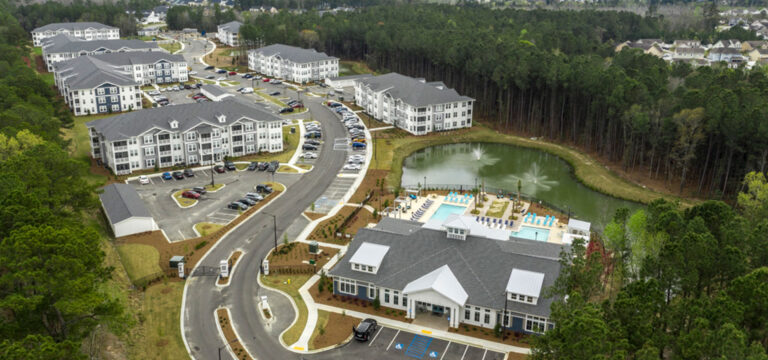Real Estate Industry is Evolving
The real estate industry is constantly evolving, driven by new technologies, consumer demands, and demographic changes. In recent years, the industry has undergone some major changes, as it has become more digital, sustainable, and inclusive.
Here are some of the ways in which the real estate industry is evolving:
- Digitalization: The real estate industry is becoming increasingly digital. Real estate professionals are using online platforms to reach new customers, list and sell properties, and manage their businesses. They are also using new technologies, such as virtual tours and augmented reality, to create more immersive real estate experiences.
- Sustainability: The real estate industry is also becoming more sustainable. Developers are building more energy-efficient and environmentally friendly buildings. And homeowners are increasingly interested in sustainable features, such as solar panels and rainwater harvesting systems.
- Inclusivity: The real estate industry is also becoming more inclusive. Real estate professionals are working to make homeownership more accessible to people of all income levels and backgrounds. They are also working to create more inclusive communities.
Here are some specific examples of how the real estate industry is evolving:
- Real estate agents are using social media to reach new customers and market their listings. A recent study found that 77% of real estate agents use social media for business. Social media platforms such as Facebook, Instagram, and Twitter allow agents to connect with potential customers and showcase their listings to a wider audience.
- Virtual tours are becoming increasingly popular. Virtual tours allow potential buyers to tour properties from the comfort of their own homes. This is especially convenient for buyers who live far away from the property they are interested in.
- Augmented reality (AR) is being used to create more immersive real estate experiences. AR apps allow users to see how furniture and other items would look in a space before they buy them. This can help buyers to make more informed decisions about their purchases.
- Developers are building more energy-efficient and environmentally friendly buildings. LEED certification is a popular green building rating system. LEED-certified buildings are designed to reduce energy consumption, water usage, and greenhouse gas emissions.
- Homeowners are increasingly interested in sustainable features. A recent survey found that 67% of homeowners are interested in sustainable features for their homes. Popular sustainable features include solar panels, rainwater harvesting systems, and energy-efficient appliances.
- Real estate professionals are working to make homeownership more accessible to people of all income levels and backgrounds. One way they are doing this is by offering down payment assistance programs. Down payment assistance programs can help buyers to afford a down payment on a home, even if they have limited savings.
- Real estate professionals are also working to create more inclusive communities. One way they are doing this is by working with organizations that promote fair housing. Fair housing organizations work to ensure that everyone has equal access to housing, regardless of their race, religion, or ethnicity.
The real estate industry is constantly evolving, and it is exciting to see how the industry is adapting to meet the changing needs of consumers. The digitalization, sustainability, and inclusivity trends that we are seeing today are just the beginning of what is to come for the real estate industry.
How the real estate industry is evolving
The real estate industry is constantly evolving, driven by new technologies, consumer demands, and demographic changes. In recent years, the industry has undergone some major changes, as it has become more digital, sustainable, and inclusive.
Here are some of the ways in which the real estate industry is evolving:
- Digitalization: The real estate industry is becoming increasingly digital. Real estate professionals are using online platforms to reach new customers, list and sell properties, and manage their businesses. They are also using new technologies, such as virtual tours and augmented reality, to create more immersive real estate experiences.
- Sustainability: The real estate industry is also becoming more sustainable. Developers are building more energy-efficient and environmentally friendly buildings. And homeowners are increasingly interested in sustainable features, such as solar panels and rainwater harvesting systems.
- Inclusivity: The real estate industry is also becoming more inclusive. Real estate professionals are working to make homeownership more accessible to people of all income levels and backgrounds. They are also working to create more inclusive communities.
Here are some specific examples of how the real estate industry is evolving:
- Real estate agents are using social media to reach new customers and market their listings. A recent study found that 77% of real estate agents use social media for business. Social media platforms such as Facebook, Instagram, and Twitter allow agents to connect with potential customers and showcase their listings to a wider audience.
- Virtual tours are becoming increasingly popular. Virtual tours allow potential buyers to tour properties from the comfort of their own homes. This is especially convenient for buyers who live far away from the property they are interested in.
- Augmented reality (AR) is being used to create more immersive real estate experiences. AR apps allow users to see how furniture and other items would look in a space before they buy them. This can help buyers to make more informed decisions about their purchases.
- Developers are building more energy-efficient and environmentally friendly buildings. LEED certification is a popular green building rating system. LEED-certified buildings are designed to reduce energy consumption, water usage, and greenhouse gas emissions.
- Homeowners are increasingly interested in sustainable features. A recent survey found that 67% of homeowners are interested in sustainable features for their homes. Popular sustainable features include solar panels, rainwater harvesting systems, and energy-efficient appliances.
- Real estate professionals are working to make homeownership more accessible to people of all income levels and backgrounds. One way they are doing this is by offering down payment assistance programs. Down payment assistance programs can help buyers to afford a down payment on a home, even if they have limited savings.
- Real estate professionals are also working to create more inclusive communities. One way they are doing this is by working with organizations that promote fair housing. Fair housing organizations work to ensure that everyone has equal access to housing, regardless of their race, religion, or ethnicity.
The real estate industry is constantly evolving, and it is exciting to see how the industry is adapting to meet the changing needs of consumers. The digitalization, sustainability, and inclusivity trends that we are seeing today are just the beginning of what is to come for the real estate industry.







